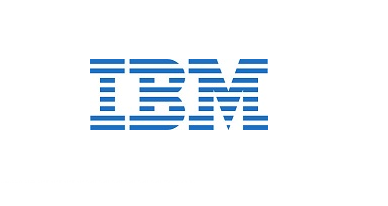Foreword
The compuBase database is not exhaustive on the IBM partners, nevertheless we estimate that we cover between 60% and 70% of IBM partners for EMEA and NA in value, which is largely enough to provide a accurate analysis. This database is frequently updated, the frequency varies according the partner size between 9 and 18 months.
For more information or specific counts please consult our website https://www.compubase.biz/ict/getSelectionPage.action
If you need a specific survey please contact us.
For more information or specific counts please consult our website https://www.compubase.biz/ict/getSelectionPage.action
If you need a specific survey please contact us.
IBM and the indirect channel
IBM has a long history with the indirect channel, which refers to the distribution of its products and services through third-party resellers, distributors, and partners. Here's a brief overview of IBM's history with the indirect channel:
- Early Years: IBM was founded in 1911, and in its early years, it primarily sold its products directly to customers. However, as the company grew and expanded its product offerings, it recognized the need to leverage third-party channels to reach a broader customer base.
- Emergence of the Indirect Channel: In the 1960s, IBM began to develop relationships with independent software vendors (ISVs) and original equipment manufacturers (OEMs) to enhance its product ecosystem. This marked the beginning of IBM's engagement with the indirect channel.
- Introduction of the IBM Business Partner Program: In the 1990s, IBM formalized its indirect channel strategy with the introduction of the IBM Business Partner Program. This program provided resellers, distributors, and systems integrators with the tools, resources, and support needed to sell and service IBM products.
- Expansion and Evolution: Over the years, IBM expanded and refined its indirect channel strategy to adapt to changing market dynamics. It broadened its partner ecosystem to include value-added resellers (VARs), managed service providers (MSPs), and consultants, among others.
- Shift to Solutions and Services: As the technology landscape evolved, IBM shifted its focus from hardware to software, solutions, and services. This change was reflected in its indirect channel strategy, with an increased emphasis on providing partners with access to IBM's software portfolio and service offerings.
- Partner Enablement: IBM invested in partner enablement programs, including training, certification, and co-marketing initiatives, to equip its channel partners with the necessary skills and resources to effectively sell and support IBM solutions.
- Cloud and Cognitive Era: With the rise of cloud computing and the advent of cognitive technologies, such as artificial intelligence and analytics, IBM further adapted its indirect channel strategy. It launched the IBM PartnerWorld program, which focused on supporting partners in delivering cloud-based solutions, cognitive systems, and emerging technologies.
- Continued Collaboration: IBM has continued to collaborate with its partners to co-create solutions, develop industry-specific offerings, and address customer needs. The company recognizes the importance of the indirect channel in reaching diverse markets and delivering value to customers.
Currently, IBM Channel's strategy is based on different axes.
- PartnerWorld Program: IBM operates the PartnerWorld program, which provides resources, tools, and support to its network of partners. The program aims to enable partners to build skills, expand their offerings, and achieve mutual growth. PartnerWorld offers various membership levels, each with different benefits, incentives, and access to IBM's technology and solutions.
- Solution and Industry Focus: IBM has been increasingly focused on providing industry-specific solutions and services. The company collaborates with partners to develop tailored offerings that address the unique needs of specific sectors, such as healthcare, finance, retail, and manufacturing. This industry-centric approach allows partners to differentiate themselves and deliver specialized value to customers.
- Technology Enablement: IBM supports partners in building technical expertise and capabilities through training, certifications, and access to IBM's technologies. This enables partners to effectively implement, integrate, and support IBM solutions across various domains, including cloud computing, artificial intelligence, cybersecurity, data analytics, and hybrid IT infrastructure.
- Co-Marketing and Go-to-Market Support: IBM provides co-marketing resources and programs to assist partners in promoting their solutions and services effectively. By collaborating with partners on joint marketing campaigns and lead generation initiatives, IBM aims to generate demand and drive sales opportunities for both parties. Additionally, IBM may offer go-to-market support in the form of sales enablement, deal registration, and joint selling activities.
- Ecosystem Collaboration: IBM recognizes the importance of a collaborative ecosystem. The company actively engages with partners, including value-added resellers, system integrators, independent software vendors, managed service providers, and consultants, to develop integrated solutions and expand market reach. IBM's approach involves building strong relationships, fostering innovation, and co-creating solutions that leverage the strengths of both IBM and its partners.
- Cloud and Hybrid Solutions: IBM has placed significant emphasis on its cloud computing offerings, particularly the IBM Cloud and hybrid cloud solutions. The company encourages partners to leverage its cloud platform, services, and infrastructure to build, deploy, and manage applications and services. IBM's cloud strategy aims to enable partners to deliver flexible, scalable, and secure cloud-based solutions to their customers.
Definition of an IBM partner
Any qualified partner such as a partner:
- Reselling regularly an IBM solution (hardware, software) or
- an IBM certified partner (from any IT activity)
Who are IBM's partners?
My myStatsID1 GFX donut here...
IBM Partners by type of solution resold
IBM
IBM's partners by size ranges?
My myStatsID2 GFX donut here...
Top Brands into IBM's Partner Network


 Consulting Services
Consulting Services












